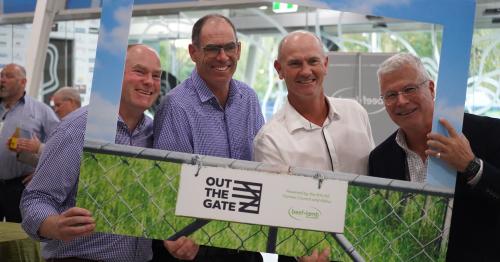Search results
Displaying 391 - 400 results of 909
- NewsOut the Gate 2026, powered by the Beef + Lamb New Zealand (B+LNZ) Farmer Council and Kāhui, is fast approaching. Taking place in Christchurch 20 and 21 May, this year’s event promises to bring …

- Factsheet0800 beeflamb 0800 233 352 wwwbeeflambnzcom farmers farmers fact sheet march 2017 worms refugia tool delay drench resistance fact sheet explains refugia how can used help delay drench resistance …
- NewsRoad repairs and slash damage among farmers’ main concerns Following his visit to areas affected by Cyclone Gabrielle, B+LNZ CEO Sam McIvor says the Government needs to clearly communicate to farmers …

- Other PDF12 some intensive winter grazing activities permitted however your intensive winter grazing activities breach permitted activity threshold you require resource consent use lnzs factsheet intensive …
- NewsThe acknowledgement by the Government that current policies will likely see too much carbon forestry planted, along with the opening up of a conversation for potential limits through the ETS, is …

- Editable PDFbt4 photopoint record data sheet use sheet record all data from each photopoint assessment location site name location date recorder camera type photo numbers gps coordinates compass bearing time …
- Other PDFtechnical assessment impacts npsfm 2020 national bottom lines sheep beef farms report 2024001 iii authors michael greer contact michael greer principal scientist director torlesse environmental ltd …
- Factsheetenvironment select committee climate change response zero carbon amendment bill beef lamb new zealand ltd 1 submission environment select committee climate change response zero carbon amendment bill …
- Editable PDFour plan integ rating native iversity 3 farm biodiversity assessment whole farm farm map mark number discrete areas native vegetation aerial photo your farm fill following assessment sheets each …
- NewsThe paper also encourages countries to use a split gas approach when determining their Nationally Determined Contributions (NDCs) under the Paris Agreement. The natural extension is that countries …
